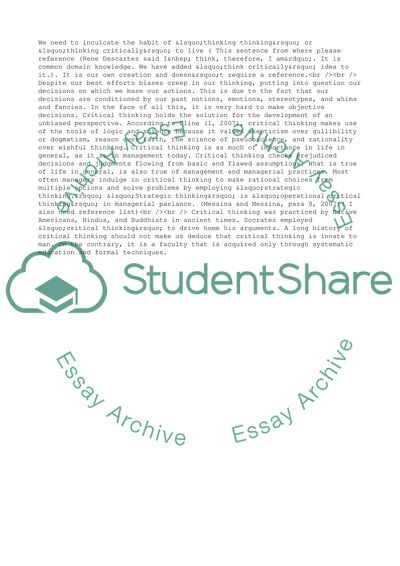Cite this document
(Discussion of Critical Thinking Term Paper Example | Topics and Well Written Essays - 2000 words, n.d.)
Discussion of Critical Thinking Term Paper Example | Topics and Well Written Essays - 2000 words. Retrieved from https://studentshare.org/management/1717041-define-and-discuss-critical-thinking
Discussion of Critical Thinking Term Paper Example | Topics and Well Written Essays - 2000 words. Retrieved from https://studentshare.org/management/1717041-define-and-discuss-critical-thinking
(Discussion of Critical Thinking Term Paper Example | Topics and Well Written Essays - 2000 Words)
Discussion of Critical Thinking Term Paper Example | Topics and Well Written Essays - 2000 Words. https://studentshare.org/management/1717041-define-and-discuss-critical-thinking.
Discussion of Critical Thinking Term Paper Example | Topics and Well Written Essays - 2000 Words. https://studentshare.org/management/1717041-define-and-discuss-critical-thinking.
“Discussion of Critical Thinking Term Paper Example | Topics and Well Written Essays - 2000 Words”. https://studentshare.org/management/1717041-define-and-discuss-critical-thinking.


